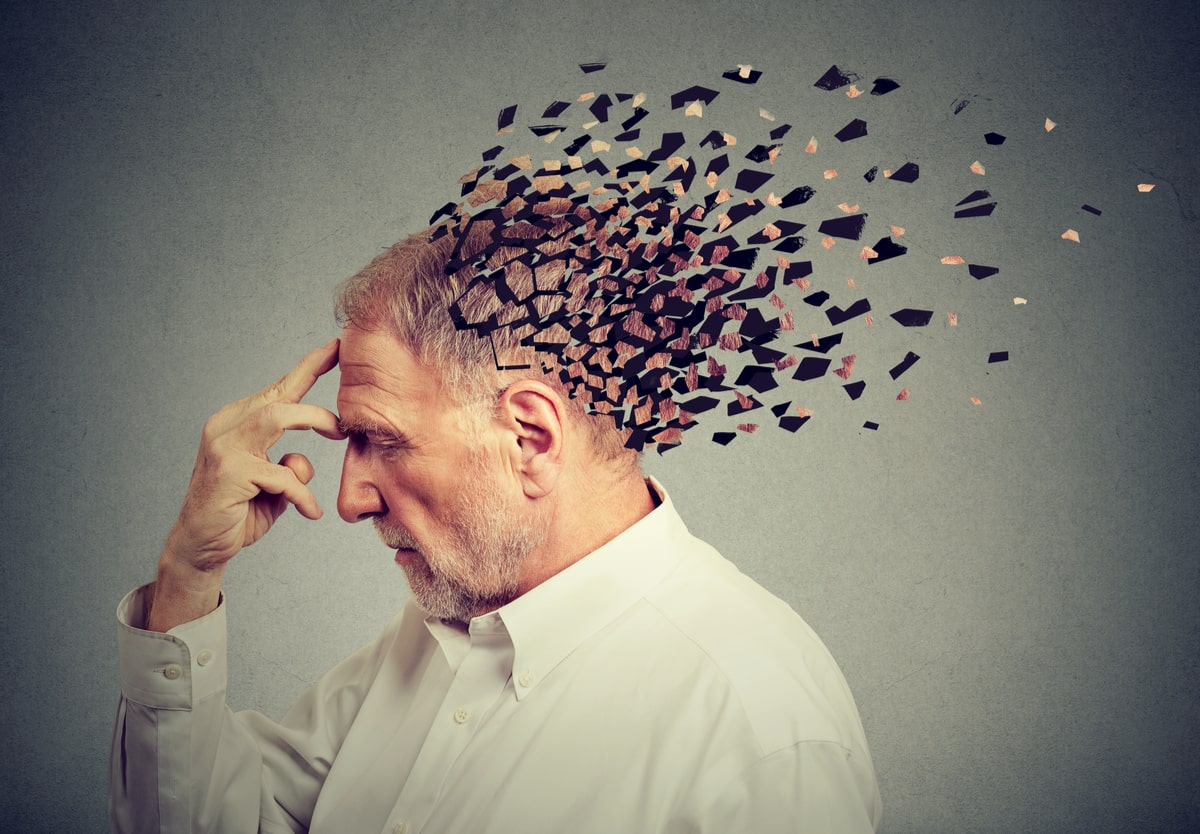Age and mind: what inhibits our cognitive abilities and how to keep them sharp
What scares us when we contemplate old age? The major concerns revolve around the loss of physical power and activity, faltering health; women, of course, dread the looks being gone. We all have our personal insecurities, yet there will be one more factor that is equally rather daunting for all of us: fear of diminishing memory and relentlessly fading cognitive abilities.

Memory is our everything, everything that we ever had and have now. It is the definitive storage of decisions, choices, deeds, and achievements. We comprise not only the physicality but the augmented value of everything we ever created, everything we ever gave to this world.
If, accidentally, tomorrow you wake up and fail to recall at least one tenth of your life memories, would not it mean that you have diminished by one tenth? And whatever funny it was to watch the cartoon or movie elderly characters who can not find where they put their glasses or what day it is, hardly anyone of us would like to find themselves in their shoes.
Does our brain really fail with age? Well, the truth looks not that grim. In fact, we have some good news for you
At what age does our memory capacity peaks?
The part of the brain responsible for cognitive abilities and memory is called the hippocampus, and it has one peculiar feature: new neural connections formation can never stop.
The longer we live, the more often we return to our memories, the more we load this very hippocampus — the bigger it should be. And our memory is getting better.
At first glance, this statement sounds a bit too fancy and contradicts life experience, given that everyone saw elderly people who could not remember what exactly they wanted to buy in the store, interrupted their story because by the middle they forgot where they started, or repeated the same thing again and again since they did not remember that they already spoke about it.
But science refutes our observations, and claims: it is at 70 that our memory is at its peak.
And the slipping descent, which begins shortly after this anniversary, should be subtle and unhurried enough for grandparents to easily beat their children and grandchildren in the relevant tests.
A new study from neuroscientists at MIT and Massachusetts General Hospital (MGH) “The rise and fall of cognitive skills“, conducted in 2015 has turned everything we knew about the development of memory and cognitive abilities on its head.
While earlier researchers believed that a person accumulates the maximum reserve of the “vocabulary parameter”, which is a sort of “memory storage” (also known as crystallized intelligence), by the age of 55, a new study with the participation of 50 thousand volunteers showed that the peak does not come before 70 years.
However, this does not mean that previous researchers were wrong. The authors of the study believe that such an impressive difference is attributed to the fact that in recent decades, people study longer, taking on new courses, acquiring new professions; they google curious things every single day, which means the process of learning as such does not stop. Besides, today there are so much more opportunities for intellectual stimulation for older people, thus retirement means even more freedom for self-development!
The younger the smarter?
We often hear “the young and fast”, “young agile mind”… Even Facebook CEO Mark Zuckerberg stated once, “Young people are just smarter,” – do all these common beliefs have any tangible ground? At what age does our mind process new information fastest?
When are we capable of the most impressive discoveries and intellectual achievements? An experiment by Massachusetts psychologists tells something about this.
Most of the studies that seem to confirm that our cognitive abilities are at their best specifically at a young age, are fine for many points, except one: in most of them the test subjects were school kids and students. Wish is exactly literally the “young” brains.
But with the development of the global network, people of all ages were able to take part in such experiments, and one by one they started defying the stereotype.
One of the more recent experiments, where about 3 million people around the world took part, came to a firm conclusion: the ability for face recognition reaches its effectiveness peak at the age of 30, and not 20, as people used to think. The same can be said about short-term visual memory: its maximum level falls on the age of “a little over 30”, and then a very slow decline begins.
Moreover, the study has shown that technically there is no particular cognitive peak that would be common for all the cognitive skills as was previously believed. Different cognitive skills develop at different periods of life and, accordingly, reach their maximum at different ages.
The speed of the information processing ability does not leave much room for manoeuvre:
its peak falls on 18-19 years, and after this milestone it only declines. Yes, yes, you will never solve problems faster than in youth, alas.
By the way, short-term memory keeps growing up till about 25 years. At this point it reaches a plateau, freezes on it for about 10 years, and after 35 years begins to gradually decline.
But the ability to assess the emotional state of people, which is arguably the most important component of emotional intelligence and becomes a more and more popular skill nowadays, reaches its peak only by the age of 50.
Do elderly people think differently?
One more curious research “Diffusion Model Analysis of Developmental Changes in Speeded Responses“, with its results published in 2011, claims: there is no significant difference between the quality of the brain work of the young and the old. The slower work speed of the elderly is explained by the fact that their nervous system takes longer to check its own decisions. Well, with some practice, it is possible to “accelerate” the brain to the level of young people.
In the end, the construction of new neural connections continues throughout our lifetime, and their intensity depends not so much on age as on how much we put our brain to work. And if some functions deteriorate over the years, then the rest either remain at the same level, or can even progress altogether making up for the functions of lagging “colleagues”.
What causes our brain to age?

As with our body, brain health depends on our lifestyle more than on any external factors (accept for a car crash with severe consequences, of course). Here are the top habits that can speed up your brain ageing.
● You neglect your hearing
A 2011 study by Johns Hopkins University (USA) found a direct link between hearing loss and an increased risk of dementia. According to the scientists, it may be attributed to the fact that loss of hearing leads to social isolation, which, in its turn, ignites dementia. Whatsoever, it is increasingly important to check the hearing, especially in the elder age, otherwise, if not take prompt measures, the dementia risk may increase fivefold!
● You don’t take care of your heart
The health condition of your heart is directly related to the condition of your brain: the stronger the heart is the more robust its work in pumping blood and delivering the precious vitamins and nutrients throughout the entire organism and the brain. Therefore, it is of a critical importance to pay close attention to and monitor the condition of your heart. The US study from 2017 published as “Associations Between Midlife Vascular Risk Factors and 25-Year Incident Dementia in the Atherosclerosis Risk in Communities (ARIC) Cohor”, proves that people who suffered from diabetes, heart disease and hypertension, dementia developed significantly more often.
● You sit too much
Recently, a sedentary lifestyle has been included in the list of factors that increase the risk of premature death. We become not only less healthy, but also less smart when we are leaning to the cozy welcoming couch and forget about physical activity. If you decided not to give up and decrease the risk of dementia by 88%, this study (Midlife cardiovascular fitness and dementia) provides a compelling evidence that regular exercise is a powerful way to do that!
● You don’t catch up with your relatives and friends
Never breaking the ties with your nearest and dearest is the sure way to prevent not only the feeling of loneliness but also dementia. The older we get, the more essential social connections become for us. Among other things, constant communication with loved ones reduces stress, which is directly related to the development of dementia in old age. The likelihood falls by 44% for people who, in their elderly age, enjoy active social bonds, according to research “Anxiety symptoms in amnestic mild cognitive impairment are associated with medial temporal atrophy and predict conversion to Alzheimer’s disease”.
● You worry too much
It is vital to learn to relax and resist stress and anxiety at an early age. If you familiarize yourself with the results of the 2014 study called “Anxiety symptoms in amnestic mild cognitive impairment are associated with medial temporal atrophy and predict conversion to Alzheimer’s disease” published in American Journal of Geriatric Psychiatry, you’ll find out that people with frequent anxiety have a higher risk of rapid cognitive decline, up to 135%! Therefore, learn to control your emotions, meditate and find your own ways to deal with stress — your brain will be very grateful to you.
● You stick to trans fats
If there was a contest for the most harmful product trans fats would have a landslide victory. For those who still don’t get it: these are unsaturated fatty acids tampered with in a special way, and are found in hydrogenated oil, margarine, vegetable and cooking fats.
Almost every system in our body is affected when we eat foods high in trans fats, and the brain is no exception. Just keep in mind: the risk of Alzheimer’s disease is increased when we eat something fatty and unhealthy.
In sound mind and clear memory
Due to the mind-blowing advances in science and medicine, due to the information society and diverse options for leisure time, we have almost unabridged access to information. We can enjoy communication on an international level, and, most importantly, we can continue to study. These fantastic possibilities enable us to put to the greatest benefit not only our physical health but also the cognitive capacity, thus leveling up our wellness. Just think about it – there are literally no limitations to preserving the memory power and the speed of thinking. So, is it really so scary to age?
Learn more about LONGEVITY
What to learn more? Read here:





